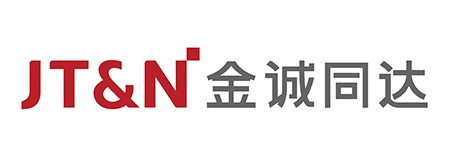The clock is ticking as foreign-invested insurance companies need to adjust their governance frameworks by 31 December 2024
A five-year transitional period for compliance with the new unified Foreign Investment Law – requiring foreign-invested companies to adjust their organisational form and structure in accordance with the Company Law – ends on 31 December 2024.
This requires foreign-invested insurance companies to make structural adjustments and complete registration with the State Administration for Market Regulation (SAMR) by the end of this year.
It means completing amendments to its articles of association, establishing a shareholders’ meeting, adjusting the corporate governance structure, and completing SAMR filing by 31 December 2024.
The structural adjustments will significantly impact corporate governance, triggering intricate financial regulatory approval and compliance requirements. As a result, the implementation process is challenging, demanding thorough attention.
General process
-
-
Elsie Shi
Senior Partner
Jincheng Tongda & Neal
Tel: +86 10 5706 8163
E-mail: elsieshi@jtn.comAmend articles of association and obtain approval from financial regulatory authorities. In addition to establishing a shareholders’ meeting and specifying its functions, duties and meeting mechanism, the amendments to articles should also include appropriate adjustments to existing corporate governance arrangements based on the relevant regulatory rules and the company’s actual circumstances.
- File amendments to articles of association with local SAMR.
- Convene inaugural interim shareholders’ meeting. Shareholders will no longer directly appoint directors and supervisors of the company. Instead, relevant parties will nominate candidates, and the shareholders’ meeting will subsequently conduct the election.
-
Once the articles receive regulatory approval, the company is obliged to finalise the nomination process and convene a shareholders’ meeting to elect the directors and supervisors. However, an employee representative director or supervisor, if any, will need to be democratically elected by the employees. If directors, supervisors and senior management personnel are adjusted or newly added during the structural adjustments, the company should seek requisite approval of their qualifications and complete the necessary internal decision-making procedures.
Key issues

Senior Partner
Jincheng Tongda & Neal
Tel: +86 10 5706 8168
E-mail: georgeyu@jtn.com
Establish shareholders’ meeting. After the adjustments, the shareholders’ meeting will replace the board of directors as the highest authority of the company.
The specific functions, duties and meeting mechanisms of the shareholders’ meeting should be determined based on laws and regulations, regulatory rules, and the actual circumstances of the company.
For companies with fewer shareholders, especially 50/50 joint ventures, it is particularly important to design a meeting mechanism and deadlock resolution mechanism that meet the interests of both shareholders and the legal requirements.
Specific issues, such as an equity transfer conditions and processes, should also be clearly stipulated in the company’s articles and other documents to reduce uncertainties and avoid disputes. If the joint venture contract contains specific provisions, such as equity transfer and deadlock resolution mechanism, the articles should be aligned accordingly to avoid conflict.
Adjust at board of directors level. After the structural adjustments, directors should be nominated and then elected by a shareholders’ meeting. Joint venture parties should consider various details and arrangements under the adjustments to effectively maintain control and influence over corresponding board seats.
When deciding the director election mechanism, consideration should be given to relevant parties’ business needs and restrictions imposed by regulatory rules on the nomination and election of directors.
For example, the Corporate Governance Principles for Banking and Insurance Institutions provide that: the number of independent directors should not be less than one-third of the total number of directors; the number of directors nominated by the same shareholder and its affiliates should in principle not exceed one-third of the total number of directors; and shareholders and their affiliates who have nominated non-independent directors should not nominate independent directors. Since the relevant regulatory rules allow some flexibility, the parties may consult financial regulatory authorities seeking to balance regulatory requirements with business needs, and thus obtain a regulatory green light for specific governance arrangements.
Adjust board of supervisors level. Shareholder supervisors will be nominated by shareholders and elected by shareholders’ meeting, instead of being appointed by the shareholders. Financial regulatory authorities may require joint ventures to establish a board of supervisors and comply with the restriction that “shareholders who have already nominated directors can no longer nominate supervisors”.
The new Company Law allows certain companies not to have supervisors or a board of supervisors, with supervisor functions performed by the audit committee under the board of directors. But a company with 300 or more employees should have employee representative directors.
Conclusion
These are some of the common issues that the authors encountered while assisting foreign-invested insurance companies in their structural adjustments.
Insurance company circumstances vary and additional specific issues may arise during the adjustment, such as appointing an interim responsible person, nominating senior management personnel, and establishing and operating board committees.
Remembering that the new Company Law takes effect on 1 July 2024, companies should closely monitor legal and regulatory developments, particularly possible amendments by financial regulatory authorities, and consider various corporate governance arrangements together, including: whether to change the legal representative of the company to a director representing the company; whether to establish a board of supervisors; how to improve the employee representative congress system; and whether to adjust the allocation of its internal management responsibility.
Foreign-invested insurance companies should initiate the relevant work as soon as possible to complete the structural adjustments in a timely manner and maintain stable operation of the company.
Elsie SHI is a senior partner at Jincheng Tongda & Neal. She can be contacted on +86 10 5706 8163 or by email at elsieshi@jtn.com
George YU is a senior partner at Jincheng Tongda & Neal. He can be contacted on +86 10 5706 8168 or by email at georgeyu@jtn.com

10/F, China World Tower A
1 Jianguo Menwai Ave
Beijing 100004, China
Tel: +86 10 5706 8585
Fax: +86 10 8515 0267
www.jtnfa.com






















